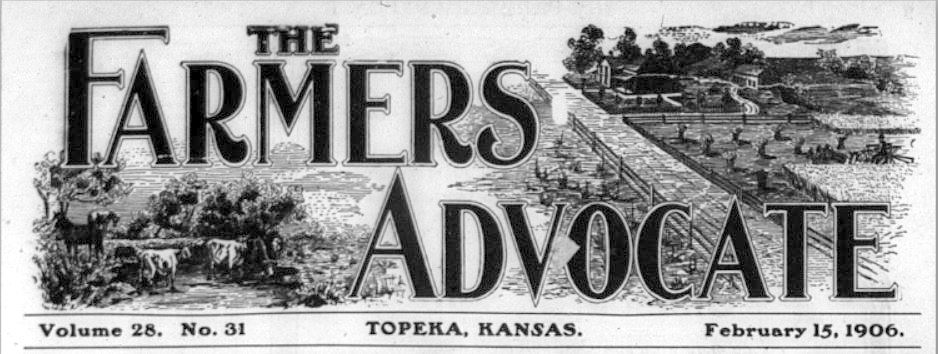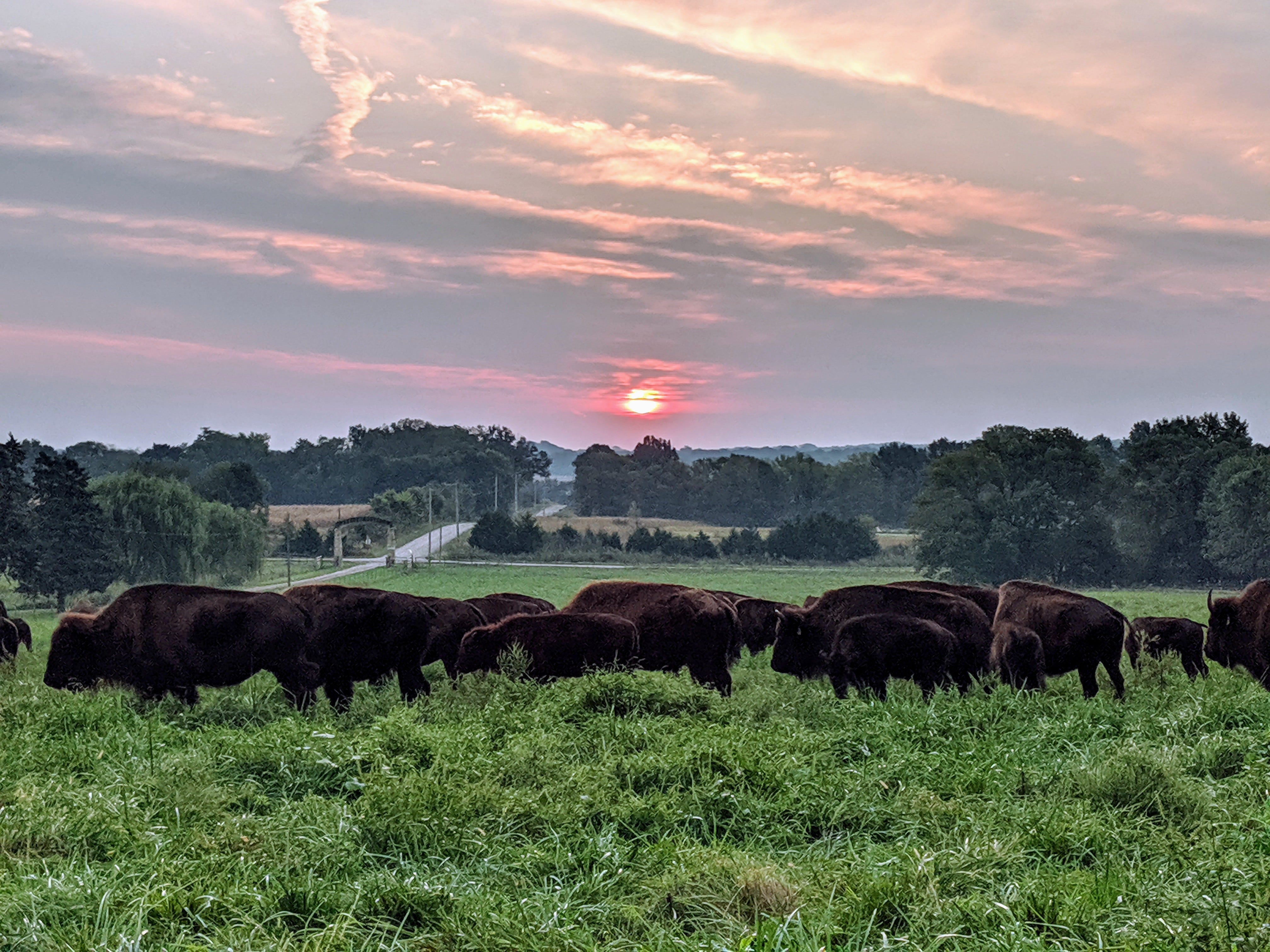A stark warning comes from Cody Atkinson of the feudalism monopoly control of our food system brings. We declared ourselves independent and free men in 1776 in a battle against the monopoly power of the British Crown and East India Company partnership, and again with the breakup of the Robber Barons of the late 19th and early 20th Centuries. Today, we are once again faced with the enslaving forces of highly concentrated power and wealth. Will we use the tools available to reassert our liberty?
The Value of a Small Farm Well Tilled was written one hundred and fourteen years before No Country for Young Farmers. Today, as with the Robber Baron days of 1906, concentrated power and wealth are back, bigger and more insidious than before. Will we become modern-day subjects to monopoly power, or will we once again, as citizens, declare our independence?
No Country for Young Farmers
Dec 21
Perhaps the biggest problem looming in farming and ranching is the average age of the American farmer is steadily creeping toward 60. This aging population, combined with youth flight from their rural homes, and sky-high barriers to entry have our farm economy careening toward feudalism. If current trends continue, Big Ag will join the Big Banks as too big to fail. The power that monopolies like Brazil’s JBS, China’s Smithfield, and the US’ Cargill and Tyson have over our political process has led to financial ruin for rural America and bold action is needed to reverse these trends before it’s too late.
As trends toward larger farms that rotate between 2, maybe 3, crops that are only fit for animal consumption dominate the landscape across America’s breadbasket, it would seem crazy for anyone to even consider farming. However, a desire to reconnect to our land and food runs deep in many Millenials and Zoomers but the opportunity to throw on a pair of bib overalls and produce food that humans eat is narrowing. Unless you were born expecting to inherit land or wealth, farming likely isn’t on the table. Even farming part-time is a distant dream as wages in rural areas are too low and broadband required for remote work that pays better is scarce, if available at all.
Aggressive steps need to be taken to revitalize rural areas and bring in the diversity that has helped urban areas thrive. Loans for new and beginning farmers, especially BIPOC and female farmers, need to be more accessible, student loan debt needs to be canceled, broadband must be expanded, and agribusiness giants must be shackled. And that’s just the start.
The global pandemic that has taken the lives of hundreds of thousands of Americans has exposed just how weak our food system has become under corporate control. As images of heartbroken dairy farmers disposing of thousands of gallons of fresh milk as they already struggle to get by are juxtaposed with food bank lines wrapping around city blocks, a conversation has been sparked about our broken supply chains. Fixing this problem will require renewed and increased investments in local and regional food systems that support farmers and the communities they call home.
Of course, no discussion about farming should be taken seriously without at least mentioning the long-term environmental damage of industrial agriculture. I fear the lack of seriousness with which this issue is being approached stems from the lack of decision-makers who are likely to be around when the most dangerous and consequential effects of climate change occur. As our drinking water fills with pesticides and pig shit, the air we breathe poisons our lungs, and the soil we rely upon to produce a successful crop erodes. Quite frankly, the future of agriculture is bleak and there must be a changing of the guard and real support for sustainable production if we hope to have a livable future not littered by factory farms.
Sadly, help doesn’t seem to be on the way. The recent nomination of Tom Vilsack to be the next Secretary of Agriculture (again) has rallied both conservatives and progressives in a unified voice I thought the nation could no longer muster. His record of support for industry over independent producers is evident as his first stint oversaw a complete lack of intestinal fortitude when it came to standing up to corporate titans despite promises and hearings to do just that. Farmers risked their livelihoods to speak out against monopoly abuse and the lack of action has marred the Democratic brand across rural America. A return to the poisoned well is no way to water the next crop of progressives.
If we, as a nation, want a food system that feeds our communities, respects its workers, and practices good stewardship of our shared natural resources, Tom Vilsack will have to do an about-face on his first term and lead the charge for new and beginning farmers. Will he answer the call?
Cody Atkinson is the son of a long line of Missouri farmers. Cody grew up in Odessa, Missouri spending time on his family’s small cow/calf operation. Cody and his wife, Haven, hope to one day run their own farming operation raising bison and produce with a focus on sustainable development and disabled community integration.
When do we need our neighbors more than we need their land?

The Value of a Small Farm Well Tilled
Reverse the Values
Put a $16,000 Boy on a $1,000 Farm Instead of a $1,000 Boy on a $16,000 Farm.
Published in The Farmers Advocate, Topeka, Kansas, February 15, 1906
In a recent review on the ever-increasing value of farm lands and the difficulties encountered by the young man who would take up farming for a living, Maxwell’s Talisman said:
Does not the increase in land values in this country raise a question of supreme importance with reference to the opportunities of our coming generation, — the young men who now are growing into manhood and must soon face the problem of providing a living for a family?
The price of land in all the states where agriculture has become a well-established industry, is now so high that a young man coming out of school or college, with his life and all its problems before it, cannot, in any reasonable time, in any occupation open to the average man, earn enough under ordinary circumstances, to buy a farm for himself, so that he may own a home. He must be either a wage-worker or a tenant farmer.
“And is not that solution to put the value and the power of production from the land into the boy himself, by a system of right education …”
Is there not a solution of this problem which can be made to apply to every young man of average industry and capacity? And is not that solution to put the value and the power of production from the land into the boy himself, by a system of right education, rather than in the land? In other words, to make this point clear, one hundred and sixty acres of land is none too much for a man to have to furnish a good living for himself and a family, under the ordinary methods of farming now prevailing in this country. But what is the purpose of working the farm? Is it not, first, that the farmer may have a home for himself and his family, and second, that he may have an income sufficient to enable them to live in comfort, with all the advantages of education and social environment, which every citizen in this country craves and should have?
If that home and that income can be just as well produced from ten acres of land as from one hundred and sixty acres, the amount of money necessary to secure the acreage required is reduced from $16,000, the cost of 160 acres at $100 an acre, to $1,000, the cost of 10 acres at $100 an acre. The acreage cost may be put at $100 because, although in many places land demands a much higher price, there is still plenty of good land to be had where a young farmer could start a life, for $100 an acre.
A young man with no capital except industry and ordinary capacity can hardly hope to earn $16,000, or to in any way save it as a reward of his own labor, during the earlier years of his life. He might, if more than ordinarily industrious and economical, save enough by the time he reaches middle life to buy such as a farm, but he could not do so until a reasonable time after he was ready to marry and establish a home; much less, before or at that time.
“… educate and train every boy willing to receive the training, in the public schools, from kindergarten to and including the country college, so that he will become so skilled in the art of science of close and intensive cultivation of the soil …”
Now, instead of bringing together a sixteen thousand dollar farm and one thousand dollar boy, suppose we reverse the combination and placed the sixteen thousand dollar boy on a one thousand dollar farm? All that is necessary to do that is to educate and train every boy willing to receive the training, in the public schools, from kindergarten to and including the country college, so that he will become so skilled in the art of science of close and intensive cultivation of the soil, in the process of plant growth, and irrigation, soil culture and fertilization, and the selection of the kind of crops to grow, and in the methods, processes and systems of marketing them, that by intensive farming of a ten-acre tract, costing $1,000, a $16,000 boy will be able to produce from 10 acres by better and more intensive methods of farming, than a farmer now produces from 160 acres.
It is no longer a theory. It is an established and unquestioned fact that this is quite practicable, and that the only element of doubt is in the farmer himself.
Of course the average farmer and land owner imagine the very least acreage he can get on with is a quarter section, and the more land he has the richer he is, and consequently, he spends all of his energies on crowding out his neighbors and adding as many acres as he can to his own domain.
In the near future this greed for land will gradually fade away, and farmers will find with less land and more cultivation, they can make more money, and that the smaller the farms the better the roads will be, the more neighbors they will have, the better the churches and schools, the libraries and social environment, and the greater will be the educational advantages they will be able to give to their children. With “the small farm well tended,” life itself becomes a more vastly enjoyable thing than on an isolated farm, where the owner is devoting himself to laboriously laying up money to buy out his neighbors and isolate himself still more from his fellow-man.
“… provide a system of public school education and bring it within the reach of every boy and girl within the land, which will train everyone of them so they will know how to cultivate ten acres of land in such a way that it will yield a greater profit than a quarter-section …”
To carry out the plan above suggested, it is only necessary to get two ideas firmly planted in the American mind:
That the first thing to be considered is the life we live and our relations with our fellow men, rather than the amount of money we may have in the bank or the number of acres over which we may exercise dominion.
Second, that to reconstruct our social system and solve every social and political problem which now confronts this country, nothing is necessary but to provide a system of public school education and bring it within the reach of every boy and girl within the land, which will train everyone of them so they will know how to cultivate ten acres of land in such a way that it will yield a greater profit than a quarter-section farm ordinarily does today, and will know how to cultivate one acre of land — a home acre — in the suburbs of a city or factory town, so as to produce from it a large measure of the living for a family, not withstanding that the head of the family, or other members of it, may be occupied in a clerical capacity elsewhere during the day or working in a factory or a mine.
Thanks to Tom Giessel, NFU Historian
For more on why and how:














